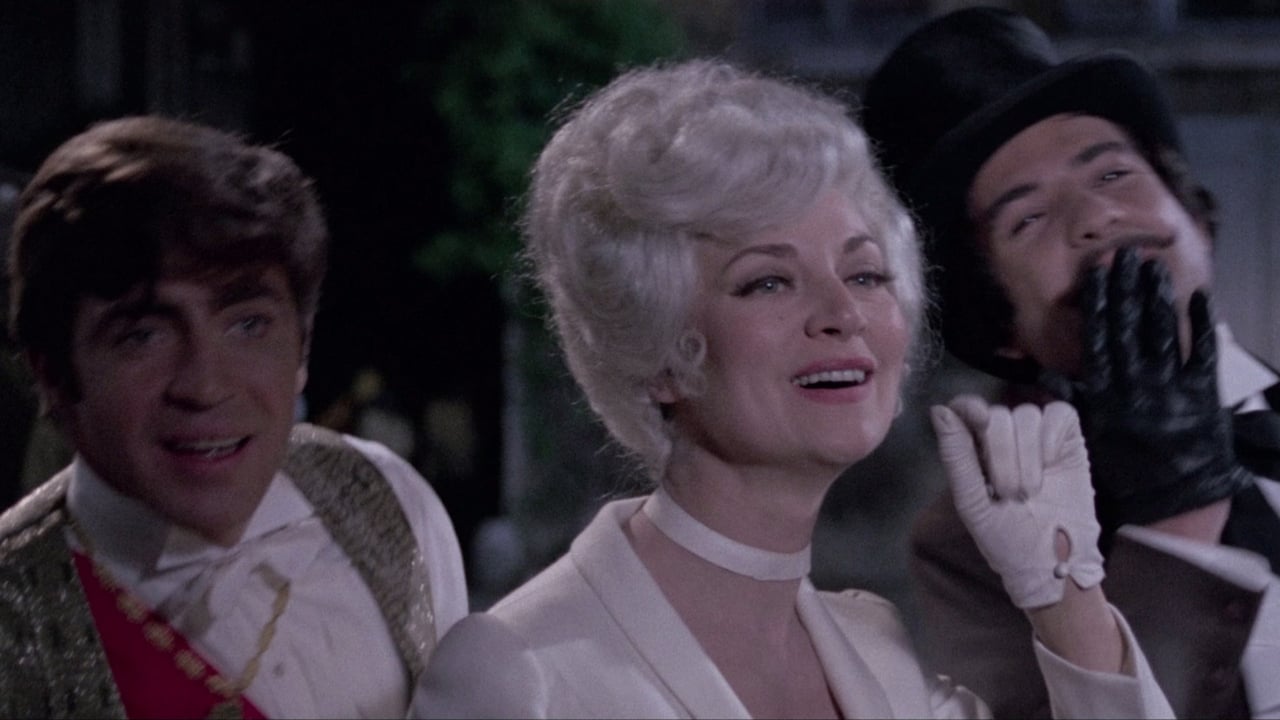

It is neither dumb nor smart enough to be fun, and spends way too much time with its boring human characters.
... View MoreClose shines in drama with strong language, adult themes.
... View MoreThe film's masterful storytelling did its job. The message was clear. No need to overdo.
... View MoreThis movie feels like it was made purely to piss off people who want good shows
... View MoreThis incredible movie is absolute unique,a true masterpiece indeed,deep piece of art,imaginative anti war plot,shown almost two hours long how make a great movie for clean brains,Philippe de Broca put the wars in their right place,given us a prestine impression whose the madness anyway,each single scene has a meaning mixing humor and allegory,the way life's mean to be,how said the count in the final scene "the world is better seen by window" ...the sweetest taste of madness........a movie to never forget!!!!Insanes's Poetry...............Resume:First watch: 2018 / How many: 1 / Source: DVD / Rating: 10
... View MoreIn the waning days of WW l a retreating German regiment wires a French village with explosives, timing them to detonate when the Scots occupy the city. When the townsfolk get wind of this they flee, leaving only the residents of the insane asylum behind. Ordered to scout out the village Private Plumpnick (Allan Bates) mistakes the loons for the sane citizenry even if they are a little flamboyant in their actions. Meanwhile the clock is ticking towards zero hour, further complicated by stubborn officers on both sides willing to waste lives over the inconsequential parcel. Employing silent film technique and greatly assisted by Georges Delerue's touching music score director Phillippe De Broca carries King along with a well paced comic juxtaposition of the rational with the irrational for most of the film's length. Bates is an engaging everyman and Genieve Bujold as his love interest quite a knockout for an asylum resident. But after the raucous introduction of putting the inmates in colorful finery and having them stridently assume occupations of the towns people DeBroca runs out ways to keep them fresh relying more heavily on the already established bombast of the opposing commanders to hammer home the message and dilute the film's greatest asset, it's poignancy. The first time I saw King of Hearts was in 1970 at an east coast bastion of counter culture, The Rhode Island School of Design. With everyone on the same page we were not only as Jean Cocteau stated sharing the same dream but the same feelings and emotions as well. War was absurd and governed by vainglorious fools who quibbled little about sacrificing youth at its altar. With the conflict in Viet Nam intensifying and becoming highly unpopular King of Hearts spoke to the mood of the day with its sentimental tact but pointed condemnation of war. I was both touched and moved that night and in subsequent viewings over the next decade but like all Zeitgeist its shelf life eventually expired and the profoundity then comes across as a well intentioned simplistic approach today.
... View MoreI originally saw this film the year it was released in the USA. I laughed like crazy the first time, though I knew the film was much deeper. When I returned for a second time I bit my tongue and concentrated on the real message, a very powerful one, indeed. It remains my favorite film. Have I seen better films? Sure, but this one touched my heart. It was the right film at the right time at the right place.In the beginning, it's a real treat to see the communications specialist wandering into the recently abandoned French town carrying a cage of pigeons. This is Pvt. Plumpick, played by the late, great Alan Bates. Well, he finds the town isn't exactly abandoned and gets chased into the town's insane asylum, hiding with the patients. When he gives his name as King of Hearts (the previous name was the Duke of Clubs)the delusional patients are overjoyed to see the king return. The Germans who chased him are spooked by the crazy people and leave. Plumpick leaves the asylum and proceeds to check out the town. He sends a two part (two pigeon) message, but one bird doesn't make it through. Then he gets knocked out by a falling pole. When he awakes the town is busy with people, but as he wanders around he sees some very odd things. His messages are equally odd and confuse the already confused British general. What they do manage to deduce is that there probably is some kind of bomb set to go off at midnight. Finally Plumpick finds out it's the asylum patients who have come into the city and assumed roles. Of course, they are thrilled to find the King and the fun really begins. Some comments focus on the patients not being really insane, but in those days, unless the family was very rich, anyone in the family who was "off" usually got packed off to an asylum to avoid stigmatizing the family. Plus most families expected their children to work and those "off" kids were of little use to them. Also,lots of people believed insanity might be a transmittable disease. We know better these days.The inmates have their time in the city in their various roles. They are still delusional and mostly act like children with new toys. Look for Michel Seurralt as the hairdresser, who will play Albin/Zaza in the La Cage aux Folles films. When I watch the film now -- I've watched it so many times I've lost count -- I like to focus on specific characters, and have grown to love everyone in the town.Things move along and, of course, this dreamland can't last forever. But if you think the wonderful part about the patients running the town was theater of the absurd, just wait, the best of that is yet to come. And I can't imagine any other way the film could have ended. A very powerful conclusion adorned by the insanity of theater of the absurd. Ionesco has nothing on De Broca! Just a beautiful film that occupies a permanent space in my heart and mind.
... View MoreThe lunatic asylum as a metaphor is not of course original and has been employed in films as diverse as The Balcony and Folle Embellie but this one has an added element of charm that works heavily in its favour. Initially it's hard to accept Adolfo Celli as a Scottish officer or indeed Alan Bates as a Scottish soldier much less an ornithologist but as soon as the French actors are rolled out (almost literally) it picks up and is off and running. Micheline Presle is particularly striking and at one level the film is worthy of her daughter, Tonie Marshall, a more than accomplished director, but all the inmates have their moments - indeed De Broca seems to have deliberately provided each one with his or her moment in the sun so that the film is at its strongest as an ensemble piece although Genvieve Bujold's chocolate box beauty tends to catch the eye whenever she appears. The plot has been dealt with elsewhere but just for the record it's kick-started by one of those World War One blunders that were obviously commonplace and seem funny now but probably less so at the time especially to those on the receiving end; ornithologist Bates is mistaken by his Colonel for an explosives expert and ordered to diffuse the bombs thought to have been planted by the Germans prior to evacuating the town (along with the residents). Nothing Bates can say can deter the Colonel from sending an unqualified man to do a job for which he lacks both training and expertise and the upshot is that Bates inadvertently releases the inmates of the local asylum who then with the logic of a dream assume the clothes and roles of the townspeople. There's a fine sense of colour in the costumes, possibly inspired by Minelli but essentially it achieves its effects by a charm offensive. Highly recommended.
... View More